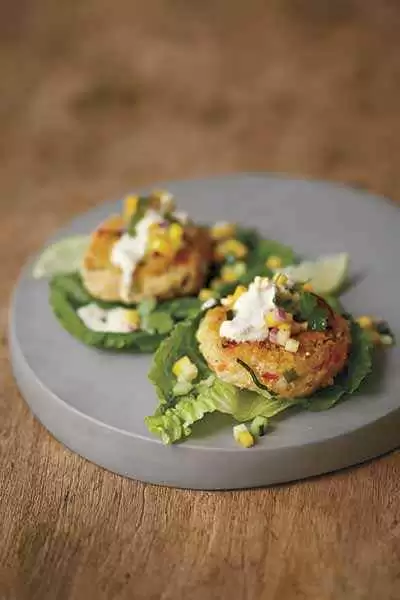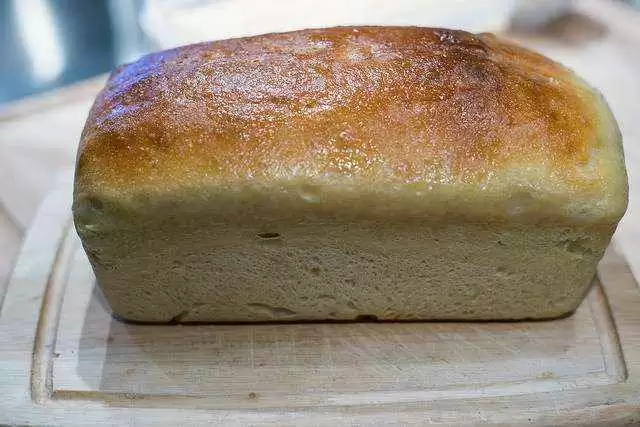
Celiac.com 03/23/2016 - Often when people hear that someone is "going gluten-free," they think that just means people are not eating wheat. This kind of thinking focuses on the obvious—since gluten is in foods it means watching what is eaten. They may associate this change in diet with some biological process or disease issue. In the world of the general public, they're not really sure what "gluten" is and they're not totally convinced that eliminating it will improve health. But for those of us who make a commitment to going gluten-free, it is far more than just eliminating certain food products. It is a personal transformation of self. What people don't often talk about is it being a psychological and social change as well.
In many ways, making a commitment to seriously go gluten-free is an act of Zen. The Urban Dictionary defines Zen as "a state of focus that incorporates a total togetherness of body and mind. Zen is a way of being. It also is a state of mind. Zen involves dropping illusion and seeing things without distortion created by your own thoughts." What I've found is that going gluten-free requires thoughtful practice, observing the body, monitoring the mind, and seeking knowledge that one integrates into regular practice. The result is the personal expression of insight into daily life.
Celiac.com Sponsor (A12):
Going gluten-free isn't just about eating. It is also about personal discipline. It has a lot to do about how we think and how we live. When we started going gluten-free we thought it was just going to entail a dietary switch. What we've learned over the last decade is that going gluten-free is an act of Zen. Our journey into becoming gluten-free started because health issues forced us down that path. We didn't willingly choose to go there. We would have been content with gorging on Texas toast, pasta, and Oreos for the rest of our lives. But if we did, we would have been chronically sick. The Universe pushed us onto the gluten-free road. At first, we did not go gracefully. We stumbled and fell and made a mess of going gluten-free. Going gluten-free seemed miserably hard and terribly inconvenient. We couldn't find products that tasted good, and those we found were expensive and weren't necessarily healthy (the amounts of eggs, butter or oil in many of them were mind-boggling). We spent too much money on poor-tasting products that were very difficult to find. We griped and complained. We felt alienated and imprisoned. Going out to eat was life-threatening because most restaurants didn't cook dishes that were safe, or if they did they cooked them in an environment in which they could be cross-contaminated. The idea of having to eat awful-tasting food and not being able to go out to eat for the rest of one's life was dreadful and depressing. Eating is one of the joys of life, and feeling like one was never going to be able to eat delicious food again felt like a fate worse than death. Going gluten-free seemed doomed to be an act of suffering. Sometimes, it is only through making a mess of our lives that we figure out how not to.
Such is the case with our going gluten-free. What we didn't realize until later was that we had created this negative reality in our minds. You can go gluten-free smoothly, effortlessly, inexpensively, and easily with no disruptions in your daily lives. It need not be a big deal. This process may take a bit of time. The secret in this transformation has little to do with the gluten-free foods available. It has more to do with what is going on in our heads.
Years of diligent practice, trial-and-error, patience and persistence, and learning have helped us to transform our perception of going gluten-free into an easy, inexpensive, and delicious way of eating. It has also fostered a different relationship with what we eat, why we eat, and how we eat. It has changed our relationship with food itself, how it is prepared, and how it is consumed.
Thinking you can eat anything you want and not get sick is illusion for people who must go gluten-free. It requires mind-over-matter self-control when we're hungry and desire foods that may not be safe. Giving in to that longing for a certain cookie or a bite of Grandma's homemade lasagna can make a person with celiac very sick. Being mindful of why that food item creates desire in us is a useful mental exercise. Certain foods evoke memories and emotions that are more delicious than the foods themselves. We can still enjoy the memories without eating foods that aren't good for us.
Food is very social and relational. Eating something served that isn't safe in order to please or not to appear rude, when it has a high likelihood of making us sick, isn't being kind to oneself. There have been times we've gotten annoyed when what-should-be-safe food has been contaminated. On the surface, it shouldn't be a big deal to redo the dish. But the symbolic message conveyed by serving someone with celiac glutened food is more problematic because it reflects that the server didn't really care about our needs. What happens to our relationships with family, friends, or certain establishments who go out of their way to make sure we can eat good foods, safely, in a no-big-deal manner? We care for them all the more. Frankly, we secretly want to see what goes on in the kitchen and read the ingredients on a product and not just take a waiter's declaration that "I'm sure it's gluten-free" to be an accurate reflection of reality until we are sure that what they say accurately reflects how actively sensitive they are to the needs of others who have dietary needs that are different from their own. Issues of trusting others, and trusting ourselves, is part of the gluten-free process. Helping to teach those who didn't understand the importance of being gluten-free in a constructive and thoughtful manner is much better than getting angry at them and refusing to eat with them again.
Going gluten-free requires mindfulness. It gives us a relationship with our food as well as with others. Eating whole and healthy foods is better for us. Taking time to understand what's in our food really matters. Cooking ingredients in a thoughtful, less-hurried way creates lovelier dishes. Consuming them with gratitude and in communication with others makes them even more delicious. We want to know where the food came from, how it was cooked and what it was cooked with, and details of the dish's preparation. Were those oats grown next to a wheat field? Did these nuts get processed on machines that also processed other items that contained glutens? Were there croutons on the salad that you just picked off? Asking questions in a non-combative way is an art. Learning to read labels and knowing the list of unsafe ingredients must be transformed from being a big deal to it being just another routine step in an ordinary day. Learning how to shop, cook, clean, serve and eat are all actually complicated steps that require attention to detail. It is in the transformation of managing all these details into a smooth, seamless and calm process that going gluten-free becomes Zen.
It took us a long time to realize that going gluten-free successfully has more to do with what's going on in our heads than what's going on in the kitchen. Look upon going gluten-free as a Zen experience, in which you have to change one pattern of behavior for a new, better one. You, like we, may find you have to change attitudes toward eating in general and eating gluten foods in particular—and you will be all the better for it.
We'd love to help you to learn more about our approach to going gluten-free. Check out our book, Going Gluten-free, which is available from Amazon and NorLights Press, and let us know how your journey is going!







.webp.156da2a9888321c5e17d473133866b50.webp)





Recommended Comments